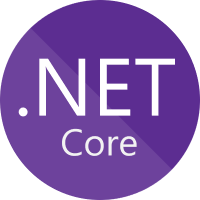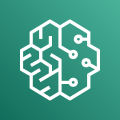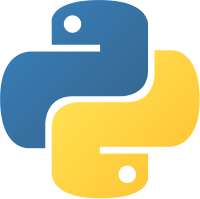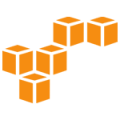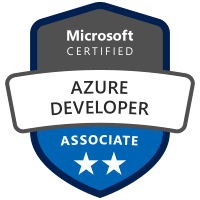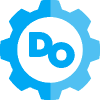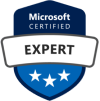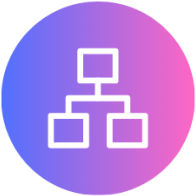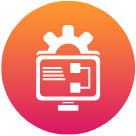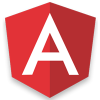ScholarHat Live Training
Programs to Land High-Paying Tech Jobs
What is ScholarHat?
Master In-Demand Skills. Get Certified
Advance your career with ScholarHat’s hands-on, certification-ready training in .NET, Java, Cloud, DevOps, and more—trusted by 20,000+ learners across the globe.
.NET Microservices Certification Training
.NET Software Architecture and Design Training
AWS AI & Gen AI Engineer Certification Training
Azure AI & Gen AI Engineer Certification Training
Python For Data Science and AI/ML Certification Training
No courses found
Try adjusting your search criteria or browse all courses
Learn to Build Real-World Projects
Hands-on, work experience based learning is what makes ScholarHat different from others. Build real world projects by applying your coding skills live with your mentors in just 15 weeks. You'll learn how to start a project from scratch by following recommended architecture, practices and deploy to server.
ScholarHat Live Training Benefits
Discover the advantages of learning with ScholarHat and accelerate your career growth
Instructor-led Live Sessions
Live Training Membership gives you access to your subscribed live training and sessions recording from anywhere, and using any device staying at home.
Expert-led Live Sessions
All sessions are led by our expert mentors who are well connected to the open source communities. They explain complex technical concepts in an easy way.
Quick Notes
Boost your learning confidence with bite-sized notes. Quick notes are bite-sized chunks, to retain crucial knowledge and aid in efficient learning and quick recall.
Hands-on Labs
Learn by doing hands-on to gain confidence to solve real-world challenges and assignments.
Skill Tests
Each Module will be followed by mockup tests and quizzes which help you to monitor your learning progress and evaluate yourself.
Build Real-Projects
All the sessions are delivered using real-life examples. You will learn how to build real projects using industry recommended principles & practices.
Career Coaching
Get career guidance from top experts as your personal coach, align your preparation strategy & learning resources to achieve your goal.
Interview Preparation
Our priority is to prepare you for next job opportunity. We provide comprehensive explanations of each topic, using interview Q&A.
Mock Interviews
Practice mock interviews with experts working in the industry, before facing your job interview.
Discord Support Access
Get access to Discord community to discuss doubts, access assignments and learning with peer interaction.
Resume Building
Optimize your resume with the help of our experienced experts to get your desired jobs.
Get Certified
Master in-demand job skills to become a technology expert, get certified, and accelerate your career.
Unlock Your Coding Potential – Get Free Personalized Career Advice!
Your learning is important. Let's have a Google Meet to get more clarity.
Personalized Learning Path
Get a customized roadmap based on your experience level and career goals to maximize your learning efficiency.
Flexible Scheduling
Book your consultation at a time that works best for you with our flexible scheduling system.
Expert Career Guidance
Connect with industry experts who will provide valuable insights and career advice tailored to your goals.
I would like to thank ScholarHat for providing training on the latest technologies ASP. Net MVC5 with Angular 4 and I got what I was looking for, basically to learn Typescript and Angular 2 & 4. The ScholarHat Staff is very supportive and provides all the help that we used to be required. I appreciate the Trainer's way, of clearing the concept, and deliberating the knowledge to others is excellent. I appreciate the Scholarhat Team backup staff, really amazing. Regular Monitoring sessions via mock-up tests as well as assignments, which proved of great help at the time of project development, paying attention individually is Great. The study material is also easy to understand and the video can be downloaded after every session. I strongly recommend ScholarHat, even if they provide WhatsApp for the resolution of any technical query. Thanks for standing with me for all my concerns.
I have completed my AWS Solutions Architect Associate Training from ScholarHat and just loved it. The trainer was Subject Matter expert who was not only very much updated with recent trends in AWS but also himself worked in industry as a Solution Architect for AWS Cloud. They have very good study material which is adequate enough to make your concepts clear about AWS Cloud and also assist you in a big manner to get your AWS Solution Architect Associate Certification. Especially hands-on training makes you feel that you actually providing a real-time solution to a business. ScholarHat also has an excellent support team who are available 24 x 7 to help us in case of any issue related to course material, learning management system, job opportunities etc. The Certification has helped me to boost my career goal. Thanks, ScholarHat!
It's a great learning with ScholarHat. I am very happy to share my feedback after completing my Amazon Web Services Master Program, This training program is such a wonderful opportunity to boost your career, it open doors to a new career path for those with no resources to change their circumstances. What they promise in their course content they deliver, Instructor was very helpful in explaining the concepts and also have the Hands-on practice of the project. The Course Delivery is amazing even for a beginner to start the career with Amazon Web Services (AWS). I am extremely happy ScholarHat Training Program. In My, Recommendation just joins the Demo and you can see yourself, its Free Thank you ScholarHat Team for helping me with my career path.
As a full stack developer, I like Load Balancing, NoSQL, VPN, Real-time Dashboard for monitoring, Web apps, Multiple programming language support, etc. so I started my Azure Training with Scholarhat and then it became very easy to me for creating VM for Azure it's really easy and time-saving. I will definitely Recommendations to others considering the course. Azure is much user-friendly compared to AWS, and its dashboard is really helpful, UI is very simple and very less easy setup. It's very easy for beginners to start with Azure. You can use their inbuilt web apps to quickly deploy your app to production. You won't regret choosing azure, Just give a try. Thanks, Scholarhat for such a Training.
Microsoft have gone out of their way to simplify the process of creating and managing cloud assets in Azure. They do not push you down one particular way of doing things either; they let you do it your way. If you want to create or manage resources through the portal, the .NET API, PowerShell, REST, etc. it is up to you. If you are a Microsoft shop already, this will be a pretty easy transition. There are lot's of tools to integrate with your internal servers if you need to and the help is pretty good for technical things. I will definitely Recommendations to others If you can afford it, it's definitely my recommendation. Azure portal is great place to manage everything, all in one place. Service is reliable, fast and easy to learn. Thanks Scholarhat.


